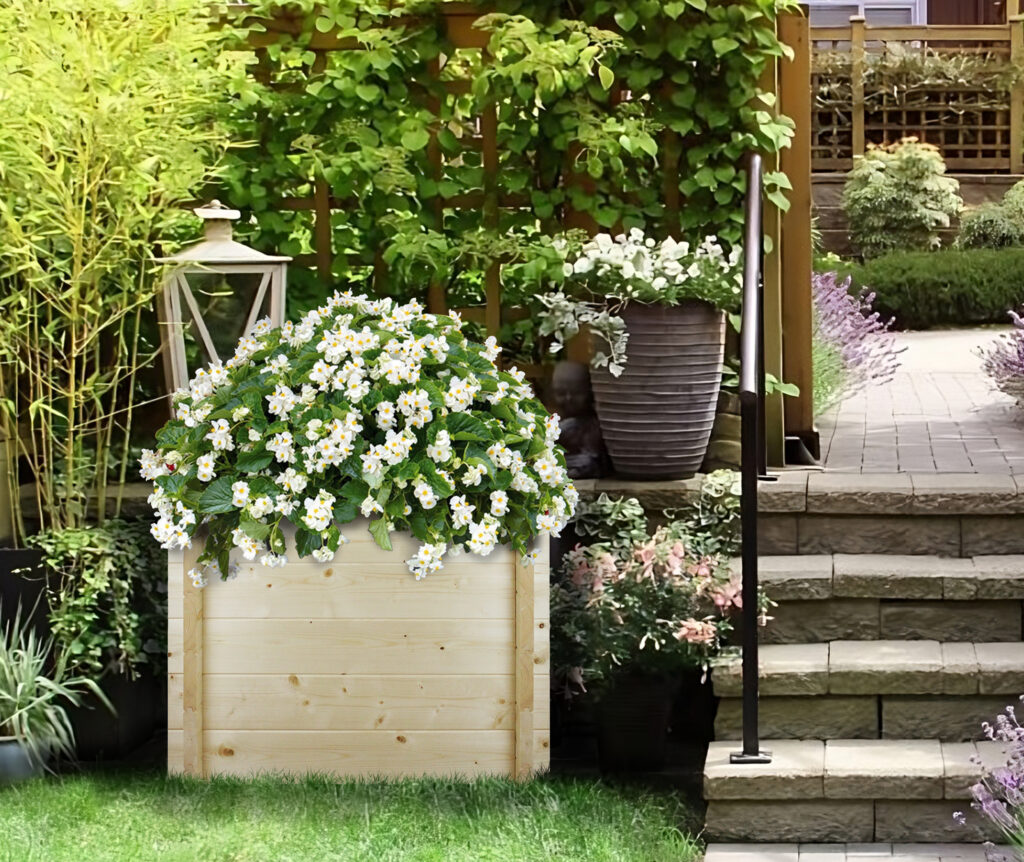
Having a nice yard doesn’t mean spending your entire weekend working on it. A lot of people think yard work takes forever, but that’s usually because they’re using the wrong tools or doing things the hard way. Keeping your outdoor space clean and under control can actually be pretty simple once there’s a plan and the right gear to get it done.
The trick is to work smarter—not longer. That means using tools that help speed up the boring parts, spacing out chores during the week, and avoiding the big pileups that happen when everything gets ignored for too long. If weekends are better spent relaxing than raking or trimming, here’s how to make that happen.
Table of Contents
Use Tools That Save Time, Not Add to It
Trying to do everything with hand tools can take hours. Some jobs, like trimming small branches or shaping bushes, don’t need anything fancy. But when it comes to bigger stuff—like cutting thick limbs, cleaning up fallen trees, or shaping overgrown shrubs—it’s a good idea to use power tools.
One tool that really helps cut down work time is a battery chainsaw. It’s light, easy to handle, and doesn’t need gas or a cord, which makes it great for quick jobs around the yard. Whether it’s cleaning up after a storm or just getting rid of that one annoying branch hanging too low, this kind of chainsaw gets the job done without making the task feel huge.
It also means there’s no need to drag out a big gas-powered tool or deal with complicated starting systems. Just pick it up and go. When tools are easy to use, it’s more likely yard work gets done quickly and doesn’t feel like such a hassle.
Don’t Let Jobs Pile Up
One reason weekends get taken over by yard work is because everything builds up. Leaves aren’t cleared for a few weeks, grass gets too long, and suddenly it’s a whole-day chore. Doing small bits of work during the week makes a huge difference.
Even just 10 to 15 minutes after dinner or before school can knock out simple things like picking up branches or blowing off walkways. When that becomes a regular habit, weekends don’t need to be spent catching up on everything at once.
Plus, keeping the yard tidy little by little helps avoid bigger problems. For example, wet leaves that sit for too long can kill grass or turn slippery. Branches that aren’t cut back can break and fall during storms. A small amount of work ahead of time saves way more work later.
Focus on the Spots That Matter Most
Not every part of the yard needs to be perfect all the time. Focus on areas people actually see or walk through. This usually means the front yard, driveway, porch, and backyard hangout spaces.
If time is short, these should be the priority. A messy corner behind the garage won’t matter as much as leaves all over the walkway or branches hanging over the driveway. Focusing on the right spots keeps things looking clean without spending hours making every inch perfect.
This also helps with motivation. It’s easier to stay on top of things when the results are noticeable. A clean entrance or neat patio feels good to walk past and makes the whole house look better.
Keep Yard Gear Ready to Go
Having tools stored all over the place—or forgetting where they are—adds extra time to every chore. Keeping everything in one spot, charged, and ready makes a huge difference. It means no wasting time looking for batteries, extension cords, or gloves.
Simple things like keeping the battery charged on a blower or trimmer, or having a rake already leaned near the back door, makes it easier to jump in and knock out a small task without delay. The faster the start, the faster it’s over.
Work With the Weather
It’s way easier to do outdoor chores when the weather is on your side. After a few dry days, leaves are light and easy to move. After rain, they’re heavy and stick together. Grass is easier to cut when it’s not soaked or burning hot outside.
If the forecast shows a nice afternoon coming up, plan ahead and do the trickier jobs then. Scheduling around the weather makes yard work quicker and way less frustrating.
Know When to Let Some Things Go
There’s no rule that says every part of a yard has to be perfectly trimmed or spotless all the time. Some weeds are harmless, and a few patches of wildflowers aren’t going to ruin anything. Trying to keep the entire yard looking like a golf course every week is not only exhausting—it’s unnecessary.
If an area isn’t used much, it can be cleaned up less often. This saves time and energy for the parts of the yard that actually matter. It’s okay to choose “good enough” over perfect.
Use Mulch and Barriers to Cut Down Work
Another smart move is setting up the yard in ways that naturally lower the amount of maintenance needed. Using mulch around trees and in flower beds helps keep weeds from growing. Planting ground cover or using landscape fabric in problem areas saves time on weeding later.
Even edging stones or small fencing can help keep grass from creeping where it doesn’t belong, which means less trimming later. These kinds of setups take a little time to start but save way more effort in the long run.
Make It a Routine, Not a Project
Yard work feels heavier when it’s always a giant task. But if it becomes part of the normal weekly routine, it stops being such a big deal. Just like brushing teeth or packing lunch, adding 10 minutes of yard work to a few days a week can keep everything under control.
This also helps with big jobs. For example, trimming one or two trees per week instead of all at once spreads the work out. The same goes for clearing flower beds or pulling weeds—just do one section at a time.
Wrapping It All Up
Keeping a yard clean and neat doesn’t have to take over an entire weekend. It really comes down to staying ahead of things, using tools that actually help, and not trying to do everything all at once. With just a little bit of work during the week, it’s totally possible to have a yard that looks great without giving up free time.
The best yards aren’t the ones that are perfect. They’re the ones that are cared for a little at a time—and that’s a lot easier to stick with.



